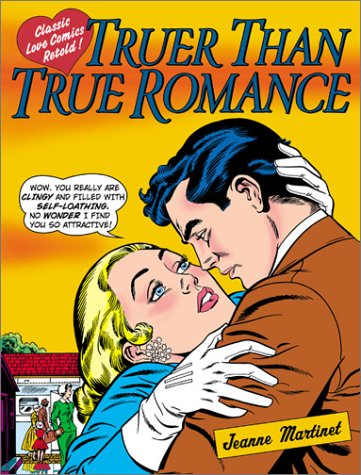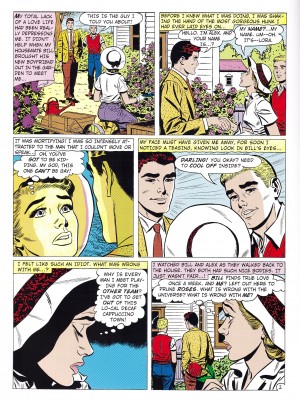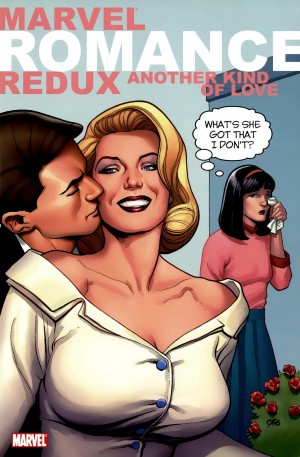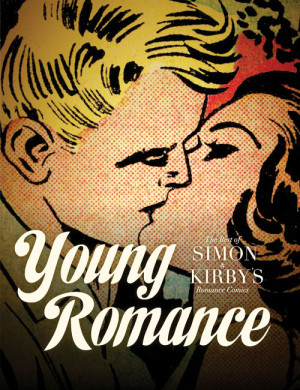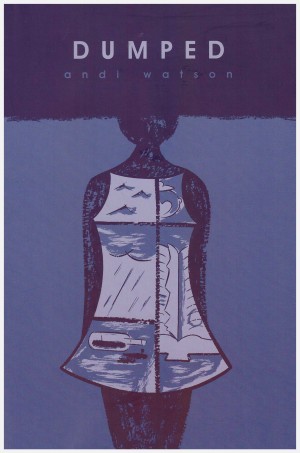Review by Frank Plowright
In her introduction Jeanne Martinet identifies as a fan of old romance comics, and, tongue in cheek, blames them for her expectations of relationships falling far short of reality. As an adult she discovered what she read in childhood was almost universally written by men, and in that entertaining introduction ascribes the frequently repeated plot of glamorous woman falling for nerdy guy to this. What, however would these comics be like if they followed the actualities of her experiences more closely? As in ‘Loving Gay Men!’ or ‘I Hate My Hair’.
The result is better than Marvel’s subsequent use of the same formula in Marvel Romance Redux because as well as implanting funny dialogue into the strips, Martinet also infuses character. The women in her modified strips convince as rounded personalities, if sometimes having to conform to the despair of the illustration. She notices elements about the strips – posture, hair style, cosmetics – that a male humorist is less likely to pick up on. It’s exemplified in the penultimate strip, which runs to fifteen pages. Originally concerning girl with a habit of stringing two boyfriends along simultaneously, Martinet transforms it into a tale of a narcissistic young woman, and adds the depth via family interactions.
For collectors there’s an added attraction of artwork by known creators otherwise very hard to come by spanning a period from 1956 to 1971. There’s an elegance to romance pages from Mike Sekowsky entirely absent from his best known material, while Irv Novick is very influenced by Carmine Infantino’s linework. The likes of Tony Abruzzo, Bill Draut, Seymour Barry, Howard Purcell, Art Saaf and Manny Stallman are less known to superhero fans, but all provide a grace and attraction, with only Jack Sparling’s pages slipping into the mundane. These, however, are very traditionally illustrated strips, rarely departing from a formula of six or seven panels across three tiers, so the competence hardly jumps out to slap you around the face.
As a bonus feature Martinet splices the stories with fake advice columns from an assortment of assumed characters from the abrasive, yet practical Dee Pressen to psychologist Dr Mary. The Male Point of View from Hank Hanson stands out from a selection that prompts as many laughs as the strips.
